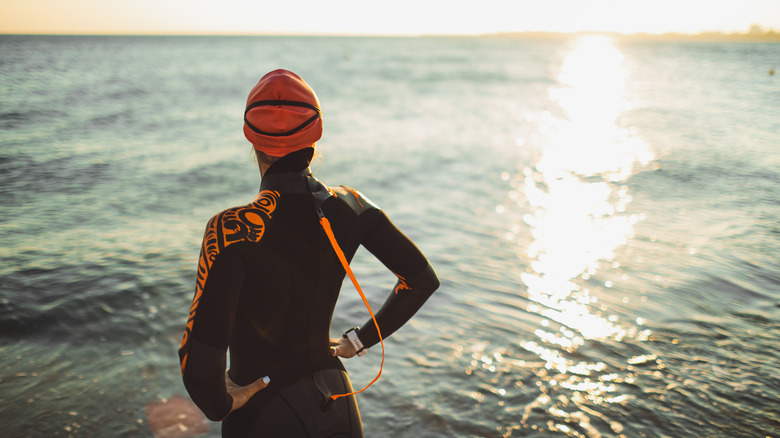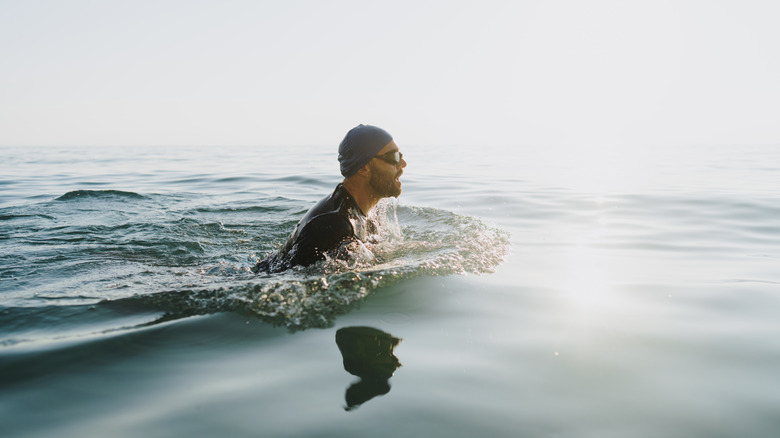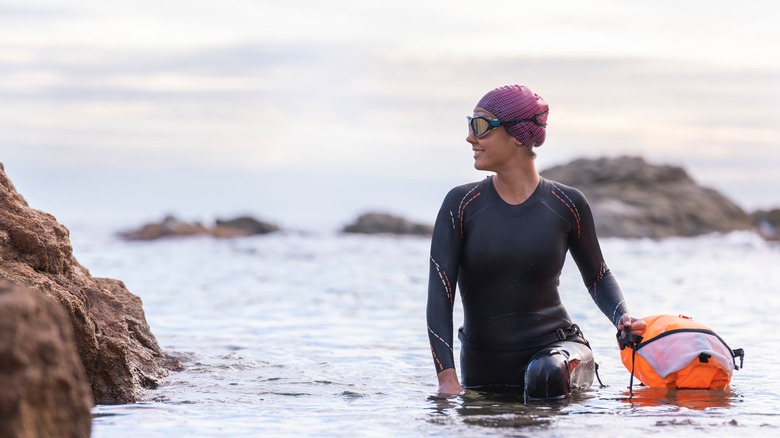What To Know Before Your First Open-Water Swimming Adventure
Swimming is an activity almost every outdoor enthusiast is familiar with and has taken part in at some point in their life. In the United States, the majority of people learn to swim in a local pool, although in some rural areas it is not uncommon for one to get their first swim experience in a small pond or creek. Regardless of where they get their start, at some point, most have also paddled around in some natural body of water –- a pond, lake, river, or beachfront waters. That is often enough to illustrate that there is a big difference between the controlled conditions in the pool and dealing with whatever Mother Nature throws at you. This is especially true of those who have swum along the beachfront, where riptides and undercurrents are among the unexpected dangers for those not familiar with these conditions.
However, even a quick swim in the surf or in a small lake isn't quite enough to prepare someone for an open-water swimming adventure. This swimming discipline is almost an entirely different world from pool swimming. It is the swimming equivalent of going from jogging around the track to off-road endurance running. USA Swimming declares open water swimming to be the "purest" form of swimming because of the ever-changing conditions. Whether preparing for an open-water race, training for a triathlon, or just looking for a new challenge, there are some things you need to know before your first open-water swimming adventure.
Preparing yourself for open-water swimming
Open-water swimming experts universally agree the first step to preparing yourself for an open-water swimming adventure is realizing and accepting the fact it is much different than pool swimming. Open-water swimming involves variable wind, currents, sun, and temperature, which is in stark contrast to the controlled conditions of a pool. This can be a big issue, especially when you consider that Red Cross claims that while around 80 percent of Americans can swim, only about half of them can swim safely. To that end, improving your swimming stroke is essential — even if you consider yourself a strong swimmer. The front crawl, or American crawl, is what most open-water swimmers prefer. However, it is a good idea to master more than one stroke so as to be able to adjust to changing conditions and utilize different muscle groups throughout the swim.
Regardless of which stroke you are utilizing, it is imperative to improve your endurance beyond what you expect is needed. Again, given the variable conditions, wind and current can extend your swimming time for a given distance far beyond what you anticipate. Additionally, if you are performing the crawl, practice breathing from either side, as again, wind and waves can make it difficult to catch a breath from your preferred side at times. Another important skill to develop before hitting the open water is sighting or judging distance from landmarks on shore to ensure you are moving in the right direction throughout your swim.
Get the right gear for your open-water swim and relax
As a sport, swimming requires little equipment. However, there are a few pieces that are considered essential for open-water swimming. Most swimmers are familiar with goggles. These will be needed for an open-water excursion. It is suggested to get goggles with sturdy straps to hold up to wind and waves without leaking. Additionally, having a tinted pair can come in handy on a bright and sunny day. Wetsuits are also considered an essential piece of gear. Wetsuits help keep your body temperature from dropping, which will happen in even warm water by the time you complete an open water swim. Additionally, when swimming in coastal waters, wetsuits will provide a barrier against stinging jellyfish which may be encountered. The same logic applies to the need for a swim cap, which helps maintain body temperature, adds a protective layer, and keeps hair out of your face. The final piece of essential gear is a swim buoy, which will make you more visible in the water so as to avoid being hit by passing boats.
The final thing to keep in mind is that it is important to relax. Cool water temperatures are known to make the body tense. Anxiety about the open water can do the same, as does letting your mind wander about creatures to beware of in the ocean or dangerous fish in freshwater. To maximize your performance and enjoyment, it is essential to let both your mind and body relax.


